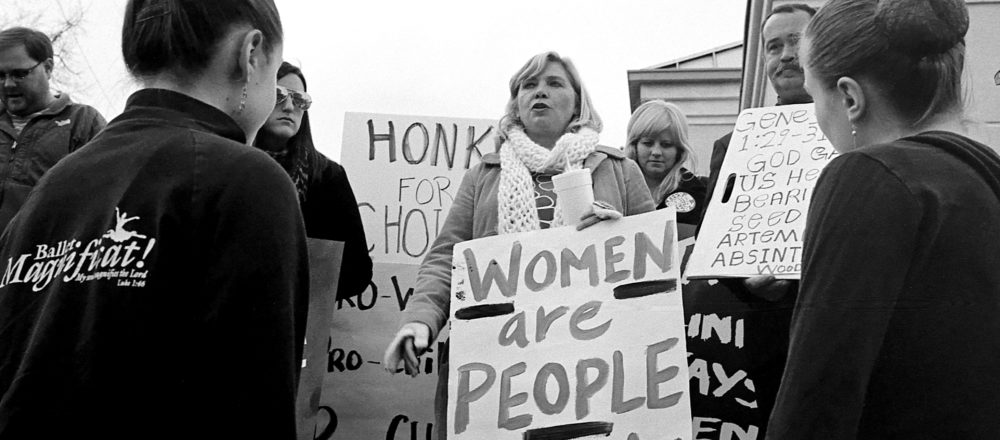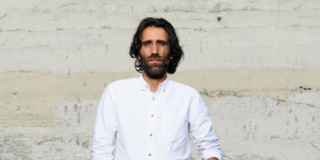A few months ago the United Nations Office of the Commissioner for Human Rights recognised Dr Willie Parker as a human rights defender. Dr Parker is a US-based abortion provider who provides abortion care in several states, including to the only abortion service in the state of Mississippi, and is one of a dwindling number of doctors providing abortion care services in the USA due to the hostile and constantly changing legal environment, daily protests outside clinics, and threats to their lives from anti-choice activists.
Access to safe, legal abortion as a health issue is recognised as part of the right to health. In 2011 the United Nations Special Rapporteur on the right to health recommended that all nation states “decriminalise abortion, including related laws, such as those concerning abetment of abortion”.
Despite this recognition and its status as a key component of reducing maternal morbidity and mortality, abortion remains criminalised to some degree in many parts of the world.
In Australia there are currently only three out of eight jurisdictions in which abortion is legally the woman’s decision and completely decriminalised (with some exceptions such as unqualified practitioners or a lack of consent from the patient).
Two jurisdictions rely on nineteenth century criminal law and judicial precedent, and three have a perplexing mix of criminal and other laws which put the legal responsibility of decision-making in the hands of doctors (who usually need to certify a range of criteria are met), not women.
Many people would be surprised to learn that criminal charges for abortion in Australia are not a relic of the “bad old days”. The last trial in Australia in which a woman was charged with the offence of procuring her own miscarriage was less than five years ago (Queensland in 2010) and the last doctor prosecuted for the crime of providing an abortion was less than ten years ago (NSW in 2006).
With abortifacient drugs mifepristone and misoprostol approved by the Therapeutic Goods Administration in 2012 and reports of women obtaining it over the internet, thus bypassing medico-legal requirements, it is only a matter of time before another woman falls foul of restrictive and outdated state or territory laws.
These antiquated laws are adapted from the United Kingdom’s Offences Against the Person Act 1861 enacted at a time when there were no pregnancy tests, doctors did not know to wash their hands in between treating patients, and women did not have the right to vote, let alone contribute to the development of the laws that governed their pregnancies.
“Personhood” laws
Much more recently we are facing a new legal anti-choice tactic. So called “personhood” laws seek to redefine fertilised eggs, zygotes, embryos and foetuses as “persons” with full legal rights equal to the woman carrying them.
Such laws are designed to protect the supposed rights of the foetus, but in reality they are being used to erode the rights to life, liberty and autonomy for pregnant women. Ironically, it seems to be women with planned, wanted pregnancies who have been worst affected.
The USA provides myriad examples. In 2004 in Pennsylvania, Amber Marlow wanted a natural delivery for her seventh baby when doctors insisted on a caesarean. Instead of negotiating with their patient, they successfully obtained a court order giving them custody of the foetus and with it, the right to force surgical intervention on Ms Marlow against her will. Ms Marlow discharged herself before they were able to do so and went on to have an uneventful natural birth in a different hospital.
In Utah, Melissa Rowland was charged with murder after one of her twins was stillborn, while in Indiana in 2011 Bei Bei Shuai, who attempted suicide (not a crime in that state) was charged with murder and attempted foeticide when her neonate died shortly after birth.
In 1983 the (predominantly Catholic) Republic of Ireland amended its constitution to give the foetus equal human rights to that of the pregnant woman. Now, thousands of Irish women travel abroad for abortions each year.
But there have been far more dire consequences of this amendment for pregnant women. In 2012, Savita Halappanavar was 17 weeks pregnant when she began to miscarry. Medically, she needed intervention to complete the miscarriage, but because the foetus still had a faint heartbeat, medical professionals were prevented by law from intervening. Ms Halappanavar became increasingly unwell, suffered septicaemia and died, leaving her two existing children without their mother.
Another Irish woman, 15 weeks pregnant, suffered a traumatic head injury. Emergency interventions failed to save her and she was declared clinically dead on 3 December 2014, but because there was a heartbeat detectable in the unviable foetus, doctors were prohibited from turning off life support. The woman’s husband and children had to endure more than three weeks watching her body deteriorate while lawyers fought for her right to a dignified death and burial. A court ruling on 26 December granted permission for her life support to be switched off, but only because the judge deemed there was no chance the foetus would survive long enough to reach viability.
Australia: the next battleground?
Australia has had two “personhood”-style bills proposed: the so-called “Zoe’s Law” in 2014 in New South Wales, and a similar bill called “Jayden’s Law” in South Australia in the previous year.
Neither succeeded in becoming law in their respective jurisdictions. But opponents of these American-style “personhood” laws fear that Australia might be the next battleground for the kinds of extreme human rights abuses inflicted upon pregnant women that have been occurring overseas.
It is imperative that all women, regardless of their intentions for current or future pregnancy, remain vigilant against attempts to erode their human rights. No matter what her views on abortion, this trend is something every Australian woman should be alarmed about and something every supporter of human rights must fight.
—
Jenny Ejlak is a long term reproductive rights advocate who has been part of successful abortion decriminalisation legal reforms in two jurisdictions. She has worked in counselling, public health and women’s health, is a member of the Public Health Association of Australia and is a founding member and current President of Reproductive Choice Australia.
Reproductive Choice Australia are currently upgrading their website and will shortly have a map and summary of all Australian jurisdictional abortion laws.
Feature Image: Ashton Elijah /Flickr





